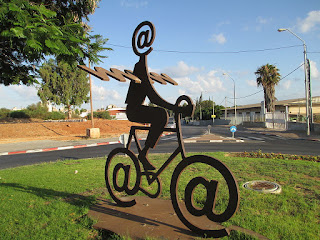Identity has
lost its worth
Identity has lost its worth. In
the premodern society, it used to be something that was concrete and immutable,
something that was forged over the course of an individual’s lifetime.
Everybody had one, and everybody’s was completely and utterly unique. According
to media scholar Sherry Turkle, premodern relationships between people were
close and personal with mainly face-to-face interactions, and identity was
sculpted from “lifelong involvement with families and communities” (Turkle
1997). Gradually, as technology advanced, civilization became industrialized,
and communities became large, the amount of face-to-face communications and
personal relationships declined. In this modern era, freedom of expression was
valued above all, with additional emphasis on facts, science, and the search
for a single ultimate truth. The development of the internet ultimately led us
to postmodernism, which focuses on individual interpretation of truth. In the
postmodern world, even identity is transient and, in a way, subjective and
relative. Old institutions “that used to bring people together . . . no longer
work as before” (Turkle 1997) as utopian discourse proceeds in cyberspace.
According to postmodernist “cyborgologist” George Ritzer, people no longer
communicate to spread facts, but rather simply “to keep the conversation going”
(Ritzer 2012). Social media turns us into cyborgs, tearing our identities apart
and casting the resulting fragments and shadows onto the silicon corridors of
cyberspace. Postmodernism is a useful metric for analyzing social media because
social media allows us to reshape our realities, permitting a “rapid cycling
through different identities” (Turkle 1997). In this way, there is no singular
ultimate identity, going along with the postmodern notion of no single absolute
truth, but rather many interpreted truths forming beliefs with equal amounts of
legitimacy.
 |
| "The Internet Messenger." Photo by Dr. Avishai Pikiwiki in Israel. |
Cyberbullying is more prevalent than physical bullying, and one plausible explanation for this is that people are more cavalier on social media because it is easier for them to say things behind a digital mask than in person. People have started using “experiences in virtual space to play with aspects of the self,” which can be a liberating experience for some people, or a harmful one as in the case of cyberbullying (Turkle 1997). In many ways, our “virtual identities” have become more real or meaningful than our physical ones. Cyberspace has given us “a significant social laboratory for experimenting with the constructions and reconstructions of self that characterize postmodern life” (Turkle 1997). Communication is becoming easier than ever, and identity is conversely becoming “cheaper” or easier and easier to create and manipulate on the internet.
Ritzer, George. Cyborgology - The Internet through a Postmodern Lens. 2012. https://thesocietypages.org/cyborgology/2012/11/19/the-internet-through-a-postmodern-lens/
Turkle, Sherry. "Aspects of the Self." Life on the screen. 1997.
No comments:
Post a Comment